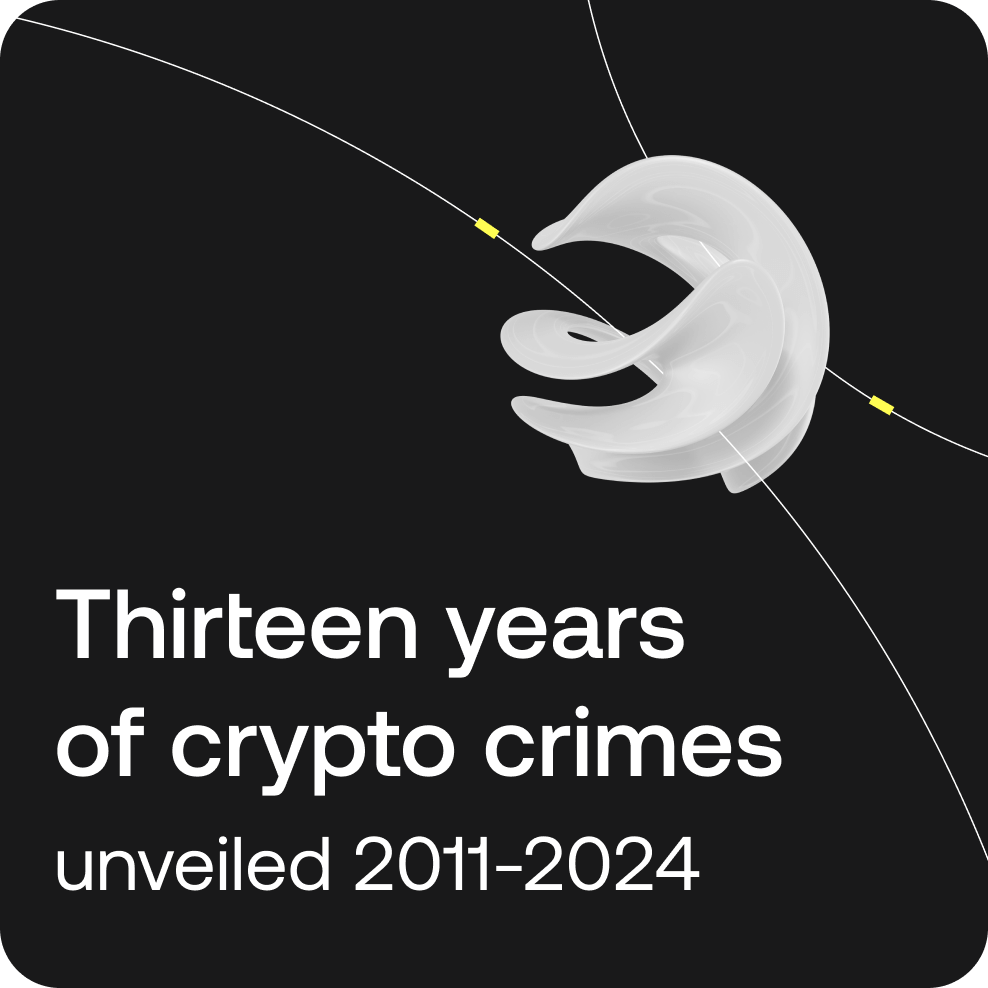Saudi Arabia’s Crypto Regulations
& Market Report
The role of cryptocurrency in Saudi Arabia’s financial landscape
Saudi Arabia’s adoption of cryptocurrency is accelerating. Among the drivers of this are the large expatriate community which wants a quick and cost-effective way of making cross-border remittances, and the widening acceptance of digital banking. Financial flows to and from Saudi Arabia have been observed with various countries, including Russia, Lebanon, Syria, India, Pakistan, and the Philippines.
While the potential for investment facilitated by legislative progress exists, it also ushers in financial crime risks, which financial institutions, regulators, and government officials alike need to be wary of.
This blog will provide a thorough overview of the current state of cryptocurrencies in Saudi Arabia, the main platforms which are in use, and what illegal activities pose risks to the industry. It will provide insights to regulators, compliance teams, investigators, and financial institutions on their roles in making the industry safe and beneficial and offer guidance on how to navigate the journey through Saudi Arabia’s crypto landscape.

The story of Saudi Arabia’s crypto adoption: a timeline overview
The Saudi Arabia Monetary Authority (SAMA) unofficially warns public about Bitcoin’s volatility.
Banks and financial institutions start researching blockchain technology’s potential, causing a surge of interest.
SAMA officially warns FIs against Bitcoin.
SAMA announces digital Riyal pilot project for banks only.
SAMA officially prohibits FIs using crypto transactions.
KSA starts exploring blockchain.
SAMA warns public about crypto again.
SAMA & UAE Central Bank start cross-border digital currency Project Aber.
Saudi Customs Authority & IBM partner in shipping logistics pilot blockchain project.
KSA & UAE updates progress on project Aber.
SAMA & CBUAE completed Aber Pilot phase.
SAMA reaffirms its ban on crypto.
Saudi Arabia launches Blockchain Academy.
The key channels for crypto transactions in Saudi Arabia
With a diverse crypto market in Saudi Arabia, several channels have become available for users to buy, sell, and trade digital assets. These include:
- Peer-to-peer (P2P) Exchanges: Binance, OKX, Kucoin, Bybit, and Bitget are all platforms that have become popular with users, as their P2P services let users trade cryptocurrencies with each other directly. This is most noticeable among Saudi residents who buy and sell crypto using the local currency, the Saudi Riyal (SAR).
- Social media & online platforms: Groups using apps such as Telegram and WhatsApp, and online marketplace sites are central to enabling cryptocurrency transactions. Some spark engagement by offering daily deals, and USDT is the most popularly used.
- Gift Card Purchases: The trend of buying Binance gift cards is noticeable in Saudi Arabia. Salla.sa and rghsa.com are websites which lead in the market.

Financial crime threats to Saudi Arabia’s crypto adoption
While there are some encouraging trends in Saudi Arabia’s crypto environment, illegal activities in several areas have been identified. These include:
- Prostitution & Narcotics: Prostitution is illegal in Saudia Arabia, and the use of cryptocurrencies to enable breaking this law has been observed. Illegal narcotics have also been bought and sold with crypto.
- Crypto frauds & scams: Platforms such as Snad.io have been suspected of involvement in fraud schemes which have inflicted significant financial losses on Saudi citizens.
- Crypto-based illicit content sales: Some Telegram groups in Saudi Arabia have been associated with selling illegal explicit content, including child sexual exploitation.
The most prominent platforms in Saudi Arabia’s crypto environment
The following exchanges are the pack leaders of the Saudi Arabia crypto landscape:
- Binance P2P: It dominates the P2P exchange market, with by far the highest number of active buying adverts (which seek to sell crypto) and selling adverts (which seek to buy crypto).
- OKX & Kucoin: They follow Binance, as they provide users with competitive rates and flexible payment options such as STCpay and URpay.
- Local platforms: Saudi-based websites such as Mal.io and Tofo make the Saudi market a priority, facilitating transactions in SARs directly to TRON addresses.
Risk mitigation and compliance recommendations
Addressing the challenges which threaten the Saudi Arabian cryptocurrency market will require the following interventions:
- Regulatory Vigilance: Introducing robust regulations and monitoring frameworks to oversee crypto activities and deter illicit transactions.
- Public Awareness Campaigns: Educating the public on the risks associated with cryptocurrency transactions and emphasizing the importance of due diligence.
- Enhanced Due Diligence: Implementing stricter KYC (Know Your Customer) and KYB (Know Your Business) protocols to identify and prevent fraudulent activities.
The role of mobile wallets in Saudi crypto transactions
Mobile wallets- apps which let users buy and sell crypto on their mobile phones- like STCpay, URpay, and Alinma Pay are growing in popularity among Saudi residents for crypto transactions. Mobile wallets offer a convenient way to exchange SAR for cryptocurrencies, thus aligning with the worldwide trend of integrating mobile technology into financial services.
The rise of nested services in Saudi crypto market
Nested services, where smaller entities operate under the infrastructure of larger offshore providers, are gaining traction in Saudi Arabia. These services reduce operational costs and offer increased liquidity to crypto traders. Platforms like Snad.io have utilized this model to expand their reach in the MENA region, though they have also been linked to fraudulent activities.

Conclusion: navigating the future of crypto in Saudi Arabia
Saudi Arabia’s cryptocurrency market is evolving and is experiencing significant growth despite the challenges it faces. A ‘whole-of-industry‘ approach in which financial institutions, regulators, and compliance officers work together is needed to establish a secure and compliant ecosystem that fosters innovation while mitigating risks. By implementing robust regulatory measures and leveraging blockchain analytics, stakeholders can protect the market’s integrity and ensure sustainable growth.
To learn more about how Crystal can help you navigate the evolving crypto industry landscape, please book a demo here.



